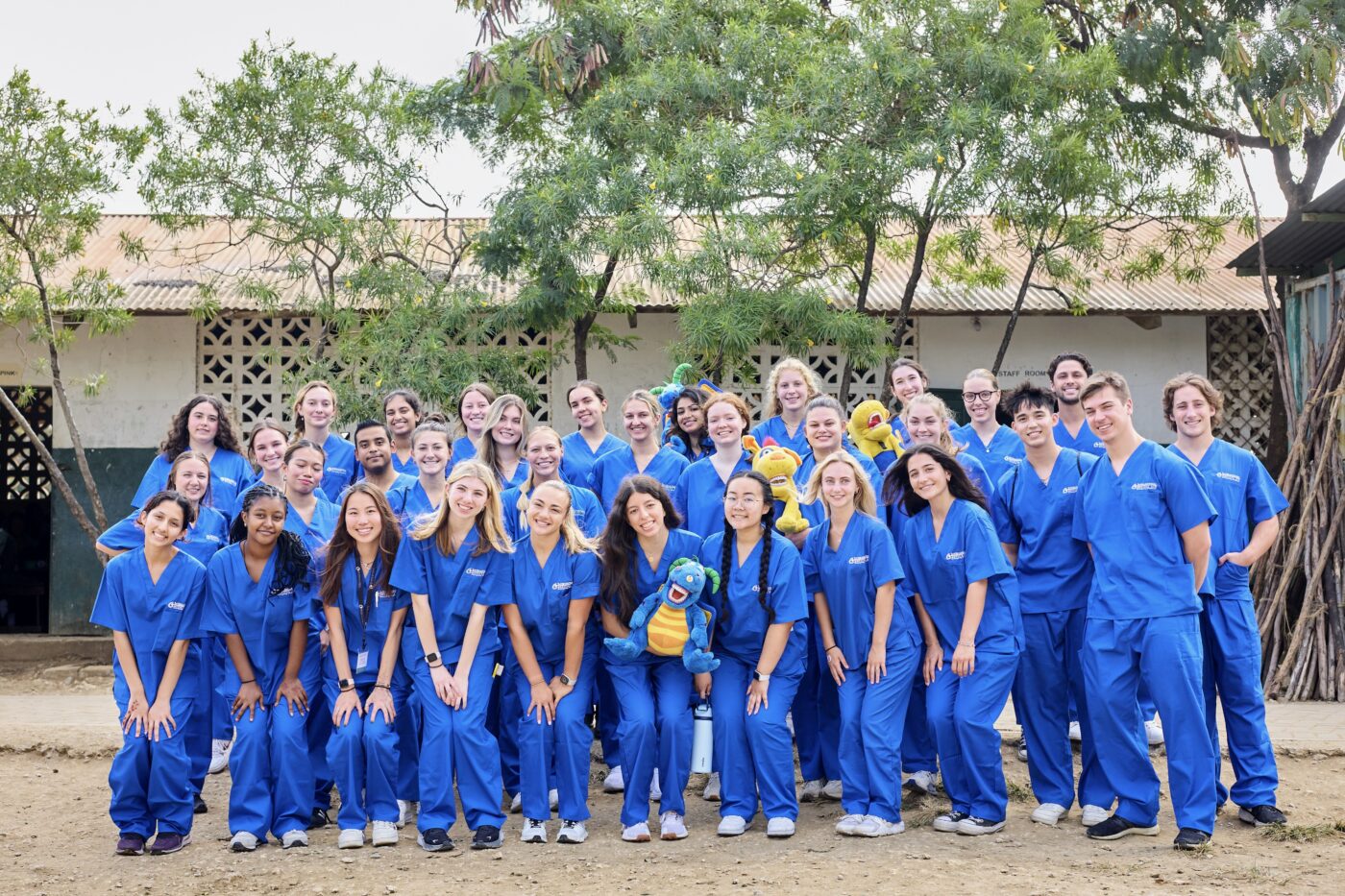The MCAT is one of the toughest obstacles you have to overcome to get into your dream medical school. Tough as it may seem, but it is easier to beat than you can imagine. With a tremendous amount of effort and commitment, you will get a high score.
If you’re looking for tips on how to prepare for the MCAT, we got you covered! Today, we look at 7 MCAT studying tips and tricks that will help you ace the exam. Let’s begin.
1. Create an effective study plan
Having a schedule that is suitable for you is one of the most important aspects of your MCAT preparation. The best way to study for MCAT is to prepare without sacrificing your other responsibilities. Because if you do, you won’t be 100% focused on your studies. You will always be thinking about other important things you need to take care of.
The length of your MCAT prep depends on how many hours you can study per week. Some students have other commitments like a job or extracurricular activities, while others have a lot of time to stay at home and study all day. Your other daily activities play a major role in setting up an effective study plan.
What are some study plans that you can follow?
If you can afford to stay at home and study for MCAT all day, a 3-month study plan is ideal for you. If you have a job and can balance your time well, 4-6 months of preparation should be enough. If you are a busy student with lots of other commitments and spends a lot of time working, 8 months is an ideal length.
The bottom line is, you have to be aware of how many hours a week you can spend studying for the exam. Doing so can make or break your performance on the test day.
2. Take multiple practice tests
Another tip on how to study for the MCAT effectively is taking practice tests on a regular basis. The MCAT is a 7+ hour-long exam. It is lengthy, so it is best to take practice tests early in your prep. Taking it on a regular basis will help you familiarize the questions. The best way to study for the MCAT is by taking a practice test bi-weekly or once a month.
There are a lot of free practice tests available online. These tests are great for your first month of studying, helping you familiarize the nature of the questions and concepts covered on the test.
After the first month of your prep, however, you would want to invest in full-length, premium practice tests that have questions that are relatively close to the actual admissions exam. In taking the best MCAT practice tests, it is a great idea to time yourself. This way, you will get used to the time pressure, something that the MCAT is sure to bring on the day of the test.
3. Use practice questions for content review
Students often wonder if they should focus more on content review than answer practice questions. The thing is, you can review content and practice at the same time by using those same practice questions for content review.
To score high on the MCAT, it’s best that you have a good mix of content review and familiarity with the actual test.
It’s highly recommended that you spend a lot of time on practice questions and just a little on content review. The latter will help improve your performance accuracy and efficiency during the actual admissions exam. This is why you can’t exclude it when preparing for the MCAT.
The advantage of answering practice questions on your content review is that it will help you see what you’re missing out. Using practice questions during the content review will help you ensure that the concepts you are studying are actually asked on the MCAT.
4. Use high-quality prep instruction and materials
In preparing for the MCAT, quality is better than quantity. Even if you’re spending countless hours on review and practicing thousands of questions, if the quality of your instruction and materials are not that good, then you’re not reaching your potential.
If you’re aiming for a very high score, chances are you’re taking MCAT classes or a prep course. If that’s the case, you should look for these qualities in your prep course:
- High-quality instruction, through videos or live instructions
- Provides full-length practice tests
- User-friendly interface or app
- Uses analytic tools
- Score guarantee (recommended)
Some of the best MCAT prep courses have all the features listed above and more. It’s up to you to evaluate each one closely to identify which course suits your needs, study habits, and the length of time you have to prepare.
5. Avoid overloading yourself
Most of the students studying for the MCAT are undergraduate students taking up a pre-med program. If that’s the case for you, it is important for you to not overload yourself by taking too many classes.
If possible, try to lighten the workload in your undergraduate classes. This way, you will be able to spend some time studying for MCAT. Also, you don’t want to take your prep as an additional burden to your already existing responsibilities as an undergrad. Try to balance it out.
6. Track your weak points
Another tip on how to prepare for MCAT effectively is identifying your weak points and working on them accordingly. After taking your first few practice tests, you will be able to identify the areas you need to improve.
In tracking your weak points, it is important to be honest. According to Dr. Sandra McGuire in a podcast with The PreMed Years, mistakes are actually beneficial for a student who is studying for a test like the MCAT.
You will be able to tell where your brain has a tendency to go wrong when you identify mistakes. More importantly, working out your mistakes will bring the most out of your studying.
7. Do some research on med school MCAT score requirements
Your MCAT score is one of the biggest factors medical schools will consider in evaluating your admission. That is why it is important for you to be aware of the MCAT score requirements set by the medical school you are applying to. If you know that specific requirement, you can use that as a baseline or a target score as you prepare for the test.
Also, knowing the MCAT score requirement for the school of your choice will keep you motivated in preparing for the test. If you keep that requirement in mind, you can map out your actions and preparation towards achieving that goal.
However, your MCAT score is not the only requirement for admission to a medical school. In fact, it’s just one of the five most important factors. So make sure to achieve a good balance between preparing for the admissions exams and taking care of other requirements.
Additional Tips from International Medical Aid
New Strategies for Mastering the MCAT
The MCAT remains one of the toughest hurdles on the journey to medical school, yet with a strategic approach, you can overcome it and achieve a good MCAT score. Beyond the essential study tips already shared, new strategies have emerged that can further streamline your preparation and ensure you are fully ready for test day.
Study Approach
Balancing Content Mastery with Test-Taking Skills
While content review is critical, developing effective test-taking skills is equally important. Recent insights suggest that integrating content review with regular practice tests not only improves your retention but also builds your stamina for a lengthy exam. Consider adopting a two-pronged strategy:
- Content Review Sessions: Use targeted study materials and flashcards to strengthen your grasp on complex topics.
- Practice Test Integration: Regularly simulate exam conditions with timed practice tests. This not only familiarizes you with the format and pacing of the test but also highlights areas for further review.
Using this integrated approach helps you monitor progress, ensuring that you’re not just memorizing information but also learning how to apply it efficiently under exam conditions.
Leveraging Technology for a Personalized Study Plan
Today’s digital tools offer a wealth of resources that allow you to create personalized study schedules. For instance, adaptive learning platforms can analyze your performance on practice questions and tailor subsequent practice tests to target your weak areas.
Many free resources are available online, including a host of free MCAT questions, which are invaluable for daily practice. Combining these free tools with premium practice tests can help you strike the right balance between quantity and quality.
Time Management and Scheduling Insights
When Should You Take the MCAT?
A critical factor in your preparation is choosing the right time to take the exam. Reflect on your personal schedule and academic load to decide when should you take the MCAT. Many successful applicants recommend scheduling the exam when you can dedicate uninterrupted study time for several months. If you’re juggling heavy coursework or work commitments, consider delaying the test slightly to allow a longer, focused study period.
How Long Is the MCAT? Planning for Endurance
Understanding the test’s duration is vital. Knowing how long is the MCAT? can help you simulate the right conditions during practice tests. The MCAT is over 7 hours long, so building your endurance with full-length tests is essential. Simulate exam conditions by setting aside an entire day for practice tests, including breaks, to mirror the real experience. This practice will help you pace yourself and reduce anxiety on the actual test day.
Building a Resilient Mindset
Overcoming Test Anxiety
The journey to mastering the MCAT isn’t just academic—it’s also psychological. Many students experience test anxiety, which can undermine even the most thorough preparation. Techniques such as mindfulness meditation, deep breathing exercises, and regular physical activity have been shown to reduce anxiety levels significantly.
Consider incorporating short mindfulness sessions into your study breaks. This approach not only helps you relax but also sharpens your concentration over time.
The Power of Positive Reinforcement
Staying motivated over months of preparation can be challenging. Positive reinforcement techniques, such as setting small, attainable goals and rewarding yourself for meeting them, can maintain high motivation levels.
Whether taking a break to enjoy a favorite snack or spending an evening with friends after a productive study session, small rewards can add up to big results. Tracking your progress and celebrating improvements—no matter how small—can make the long MCAT preparation journey more enjoyable and sustainable.
Collaborative Learning and Peer Support
Forming Study Groups
Studying for the MCAT can be a solitary endeavor, but forming a study group with peers can be a game-changer. Sharing resources, discussing complex topics, and testing each other on difficult concepts provides a dual benefit: it reinforces your knowledge and exposes you to different perspectives. Peer accountability also helps keep you on track. Schedule regular group study sessions where you can work through challenging practice questions together.
Seeking Expert Guidance
Sometimes, self-study isn’t enough. Consider investing in a high-quality prep course or seeking advice from mentors who have successfully navigated the MCAT. Look for programs that offer live instruction, detailed feedback, and personalized study plans. The right prep course can provide structure and expert insight into the nuances of the exam, helping you identify and address your weaknesses effectively.
Incorporating Real-World Learning
Applying Knowledge Beyond the Books
One of the most effective ways to solidify your understanding of MCAT content is by applying your knowledge to real-world scenarios. Participate in research projects, volunteer in healthcare settings, or shadow a doctor to see how theoretical knowledge translates into clinical practice. This hands-on experience can provide context to what you study and make the content more memorable during the exam.
Continuous Feedback and Self-Assessment
Finally, continuous feedback is crucial. Use every practice test to learn more about your strengths and weaknesses. Analyze your results, identify recurring patterns in the questions you get wrong, and adjust your study plan accordingly. Regular self-assessment builds confidence and ensures that your preparation is as targeted and effective as possible.
Final Thoughts on MCAT Preparation
The MCAT is undoubtedly challenging, but it becomes an achievable goal with determination and a well-rounded approach. Balancing content review with practice tests, leveraging technology for personalized study plans, managing your time wisely, and building resilience are all key strategies for success. By integrating these additional insights into your preparation plan, you’re well on your way to securing a good MCAT score.
Remember, preparation is a journey. Use every resource available—whether it’s free MCAT questions, expert prep courses, or guidance on when should you take the MCAT and how long is the MCAT?—to build a comprehensive and confident approach to your studies. With the right mindset, tools, and support, you have the power to conquer the MCAT and take one step closer to your dream of becoming a doctor.
Final Thoughts
There you have it, 7 MCAT study tips and tricks that will help you ace the MCAT! Remember, the MCAT is not the easiest exam there is, but with the right mindset and tons of practice, you can definitely ace it! You got this!
Special thanks to our guest author Aaron Simmons who is the founder of Test Prep Genie. He believes in studying smart rather than studying hard to be successful. On his blog at testprepgenie.com, Aaron shares tips and tricks on how to develop smarter study habits. Learn how to test prep the right way. Ace any exam and become one step closer to your educational or professional goals.





